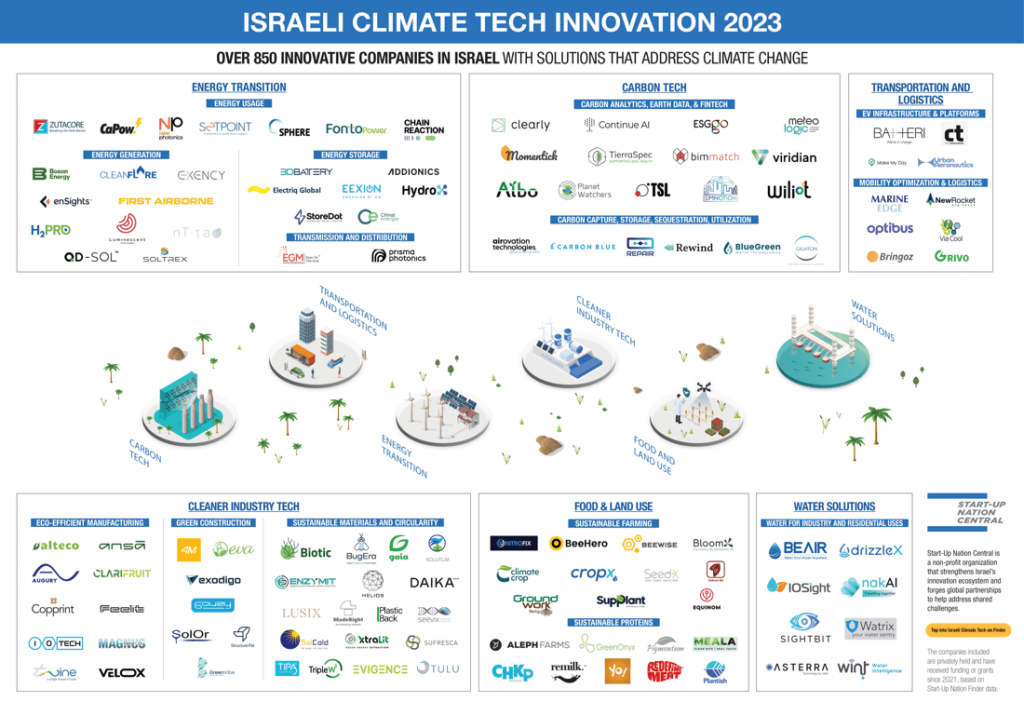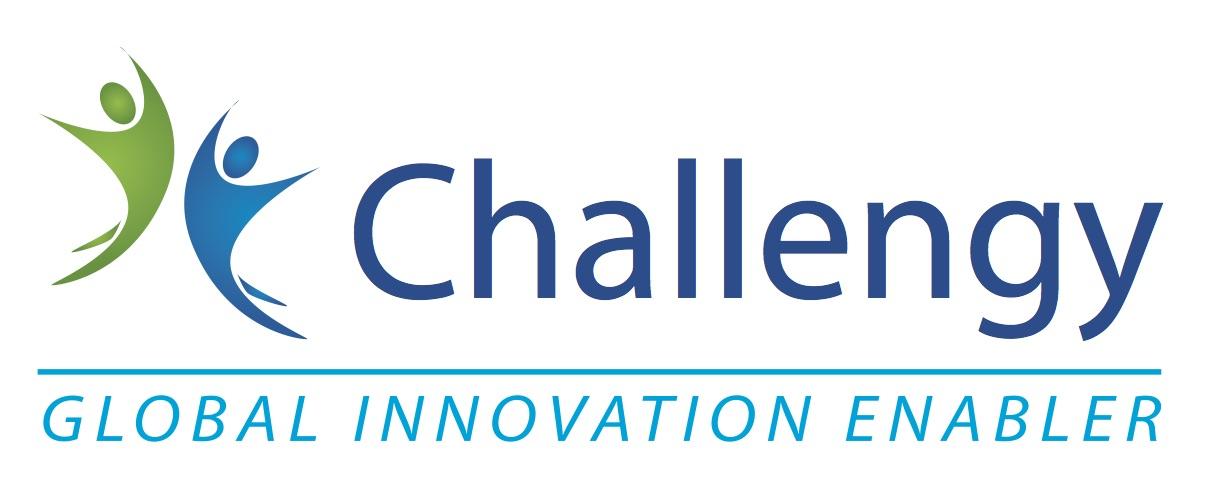Climate innovative technologies, often referred to as “ClimateTech,” encompass a range of innovative solutions aimed at addressing various environmental and climate challenges.
Israeli history is no short of epic relatable success stories, from JNK KKL reforestation to Mekorot’s water revolution, and more – which made Israel famous for “turning the desert green.” Today, Israel is not considered a world leader in ESG, alternative energy and other Climatech fronts – but it is home to some world-known Climatech innovations from the private sector.
Therefore, based on all the above, cities worldwide can benefit from Israeli ClimateTech in several ways:
- Advanced Water Management: Israel’s expertise in water management is well-known, given its experience in dealing with water scarcity. Cities facing water challenges can adopt Israeli technologies for efficient water purification, desalination, water recycling, and leak detection to optimize their water usage.
- Renewable Energy Solutions: Israeli ClimateTech companies have developed cutting-edge technologies in the field of renewable energy, such as solar power, wind energy, and energy storage. Implementing these solutions are often first deployed outside of Israel, and can help cities transition to cleaner energy sources, reduce greenhouse gas emissions, and achieve energy independence.
- Smart Agriculture: Urban agriculture and vertical farming technologies from Israel can enable cities to produce fresh produce locally using limited space and resources. These technologies can enhance food security, reduce transportation emissions, and promote sustainable agriculture practices.
- Waste Management and Recycling: Israeli innovations in waste management and recycling can aid cities in implementing efficient waste separation, recycling, and waste-to-energy conversion systems. These technologies can minimize landfill waste and promote circular economy principles.
- Air Quality Monitoring: Cities grappling with air pollution issues can benefit from Israeli air quality monitoring technologies. These tools provide real-time data on pollution levels, enabling city planners to make informed decisions about urban development, traffic management, and pollution control measures.
- Smart Urban Planning: Israeli ClimateTech can contribute to smart urban planning by providing data-driven insights into optimizing transportation systems, reducing traffic congestion, and improving overall city infrastructure for greater energy efficiency.
- Green Building Technologies: Israel has developed eco-friendly building materials and construction techniques that enhance energy efficiency and sustainability. These technologies can help cities reduce their carbon footprint by constructing green buildings and retrofitting existing structures.
- Climate Adaptation Solutions: With the increasing frequency of extreme weather events due to climate change, cities can benefit from Israeli innovations in disaster preparedness, flood control, and resilient infrastructure design.
- Collaborative Platforms: Israeli ClimateTech companies often emphasize collaboration and data sharing to address global environmental challenges. Cities can leverage these collaborative platforms to exchange best practices, solutions, and data for effective climate action.
- Investment Opportunities: By partnering with Israeli ClimateTech startups and established companies, cities can attract investments and stimulate local economies while promoting sustainable development.
To effectively benefit from Israeli ClimateTech, cities can consider the following steps:
- Engage in Collaborations: Foster partnerships between city governments, research institutions, and Israeli ClimateTech companies to share knowledge, technology, and resources.
- Regulatory Support: Create favorable regulatory environments that encourage the adoption of ClimateTech solutions, such as offering incentives, grants, or streamlined approval processes for implementing these technologies.
- Pilot Projects: Implement pilot projects to test Israeli ClimateTech solutions in real-world urban environments and gather data on their performance and impact.
- Capacity Building: Train local professionals in the operation, maintenance, and optimization of these technologies to ensure their long-term effectiveness.
- Public Awareness: Educate citizens about the benefits of ClimateTech and involve them in sustainable practices to create a collective effort toward a more climate-resilient city.
By embracing Israeli ClimateTech, cities can enhance their sustainability, resilience, and quality of life while contributing to global efforts to mitigate climate change.
Check out Israeli Climatech map, by Startup Nation Central:


